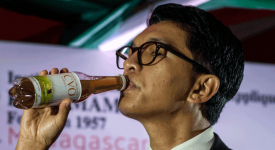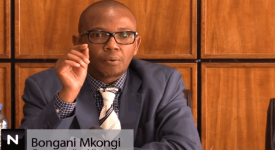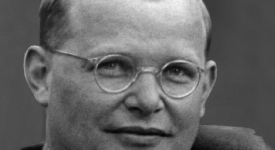James H. Cone, the fiery African American theologian and author, wrote “The Cross and the Lynching Tree” from which we are borrowing first half of our title here. The other concluding half, “Nigerian Corruption,” literally, is derived from British inventiveness.
In his book, Cone, draws a comparison between the Cross on which Jesus of Nazareth was killed and the lynching tree which was used in mass-murdering African Americans in America-styled jungle justice which targeted black peoples in America. He begins his text by observing that “The paradox of a crucified savior lies at the heart of the Christian story.” With this opening statement he commenced the unraveling of a powerfully told narrative of American racial injustice. His indictment of systemically suicidal caricaturization of the religion of Jesus in white America was too lucid, too naked a truth to find any hiding place for American hypocrisy and moral impropriety. Yet Cone’s focus was clear: dealing justice out in the behalf of his formerly enslaved tribe.
During a forum in which the same book formed the crux of discussions, a gay student challenged Cone for not speaking for the gay community in his book. In response, Cone, tactfully, and in the spirit of Africa’s griots, supplied one of the best answers I have heard any black person utter through the mouth medium. “When you write your book, you can discuss that. If I had written about it there would not be opportunity for you to write about it (paraphrasing).” In similar vein, Nigerian preachers have often been accused of not speaking out against oppression, corruption and injustice in the country. Admittedly, I’ve been one of the fiercest accuser of these men. From Pastor Enoch A. Adeboye to Pastor W.F. Kumuyi, to Bishop David Oyedepo, I have even written research papers “condemning” them as implicitly endorsing corruption. In one of those papers, a member of my research group had to withdraw her participation shortly before we presented the research paper. (It did not immediately dawn on me that Americans are more notoriously religious” than John Mbiti would ever know!) In another research paper, my fellow author, a priest of the Anglican order and professor of religion from one of Nigeria’s middle belt universities, summarily abandoned the project saying “you are going to take my job from me; you go ahead and publish this alone.” It was a smooth rider. I later invited other young academic renegades to enjoy the flight with me.
The point is, one would expect the big pastors and bishops in Nigeria to openly condemn or criticize the systemic oppression and congealed corruption in the land. One example we have often used as yardstick for open rebuke is Pastor Tunde Bakare, the “Prophetic -Apostolic” virtuoso of Latter Rain Assembly. But is Tunde Bakare a saint? Would he transform Nigeria into a paradise if he wins election and becomes president? Or, would I transform Nigeria and make it look like California as soon as I get into that cherished space called Aso Rock? Let me not make such promises. I can only work effectively from where I currently find myself. I do not bother myself about “if” or “when” I become president of this or that association or country.
Nigeria is a complex landscape, or so I am learning. So those of us who want these pastors to speak out are forgetting something: these are human beings and they also have a right to be silent. Anyone of us who feels compelled to compel pastors to speak out should themselves become pastors, have large following start speaking out. Yes, Jesus spoke out. And he did not witness his 34th birthday. These men are not in their thirties, perhaps, that is a fine excuse for them to enjoy their wealth before we soon start killing cows and buying asho ebi in honor of their great efforts.
Many of us who are calling for those pastors to protest corruption hide our own parents under the rock of ages. Instead we seek scape goats for the system. Let Sanusi tell you what his eyes are about telling you. In fact, let Tunde Bakare mistakenly win one election, then you will know the difference between Adolf and Hitler. In a system where we build our trust around persons rather than building institutions, how can we expect these persons, who have been over-glorified up to deification status, to perform well when they are blinded by the glories we have given them?
Unfortunately for these pastors, the same people who shouted “Hosanna, Hosanna” are the very ones to bury them at the slightest opportunity. So asking pastors to speak out looks like we are asking them to come forward and be hung on the lynching tree which the Nigerian system has prepared for them.







